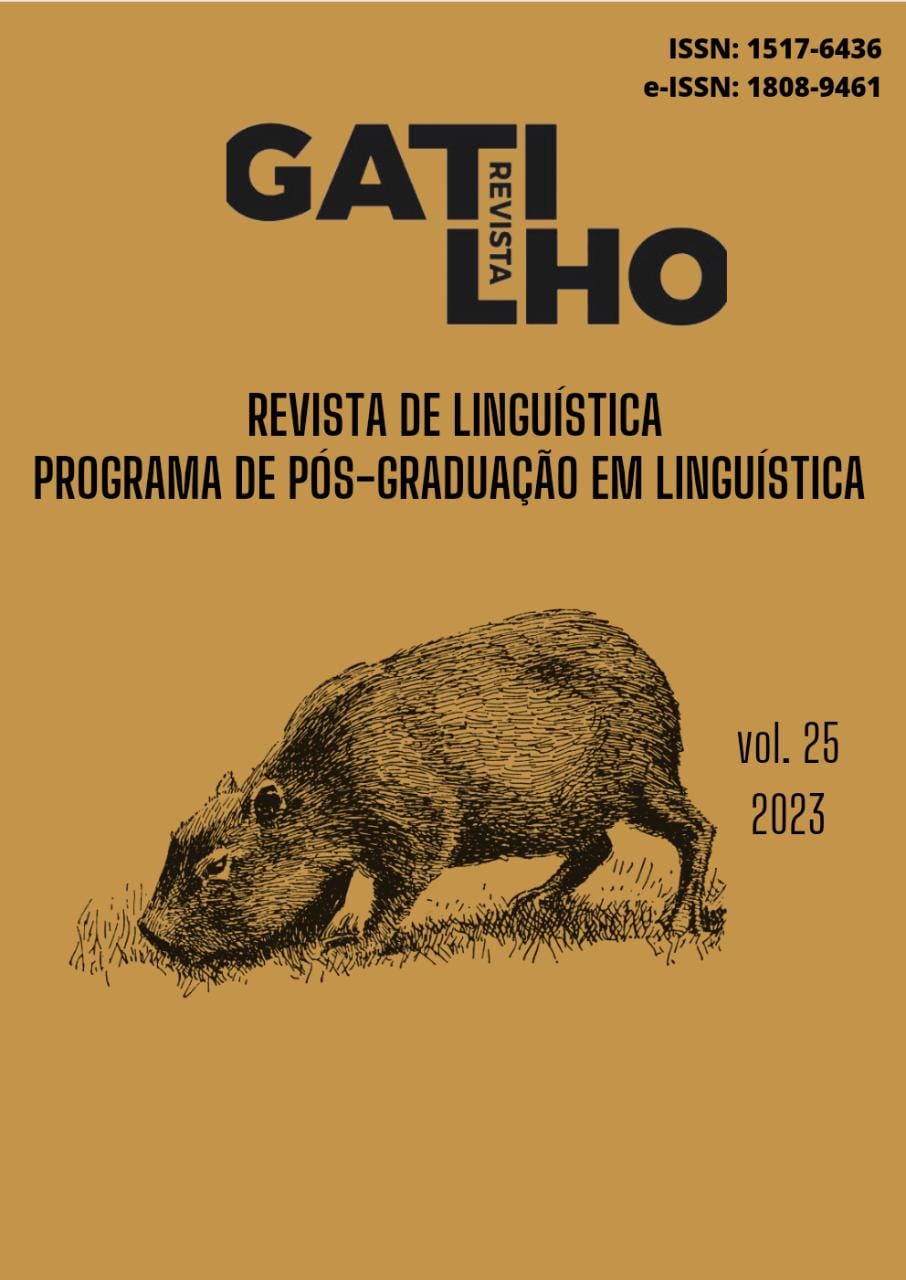Os valores semânticos e pragmáticos de uso da construção de negação "de jeito nenhum" no domínio discursivo jornalístico
DOI:
https://doi.org/10.34019/1808-9461.2023.v25.40189Resumo
Este trabalho tem como objetivo analisar e descrever o uso da construção “de jeito nenhum” no domínio discursivo jornalístico. Para isso, tomamos o arcabouço teórico-metodológico da Linguística Funcional Centrada no Uso. Geralmente, essa construção reforça o valor negativo da oração, atribuindo ênfase ao enunciado. No entanto, não encontramos maiores exposições teóricas que explicitem as motivações semântico-pragmáticas que ocasionem o uso discursivo dessa construção. Isso nos revela que, quanto aos valores negativos presentes em enunciados com “de jeito nenhum”, há uma lacuna na literatura. Dessa forma, fazem-se necessários estudos que visem alargar o tema acerca dos valores semântico-pragmáticos da construção “de jeito nenhum”. Para a realização deste trabalho, com auxílio da ferramenta de busca do Google, formamos um corpus do português contemporâneo com 20 textos que circulam na esfera jornalística. Com base no conjunto de dados analisados no corpus, constatamos que “de jeito nenhum” normalmente ocorre em contextos cingidos por uma alta polaridade negativa. No domínio discurso jornalístico, essa construção apresenta caráter subjetivo, na medida em que não só marca o posicionamento negativo do falante diante de um fato, mas também revela ao leitor a irrealização de algo.





